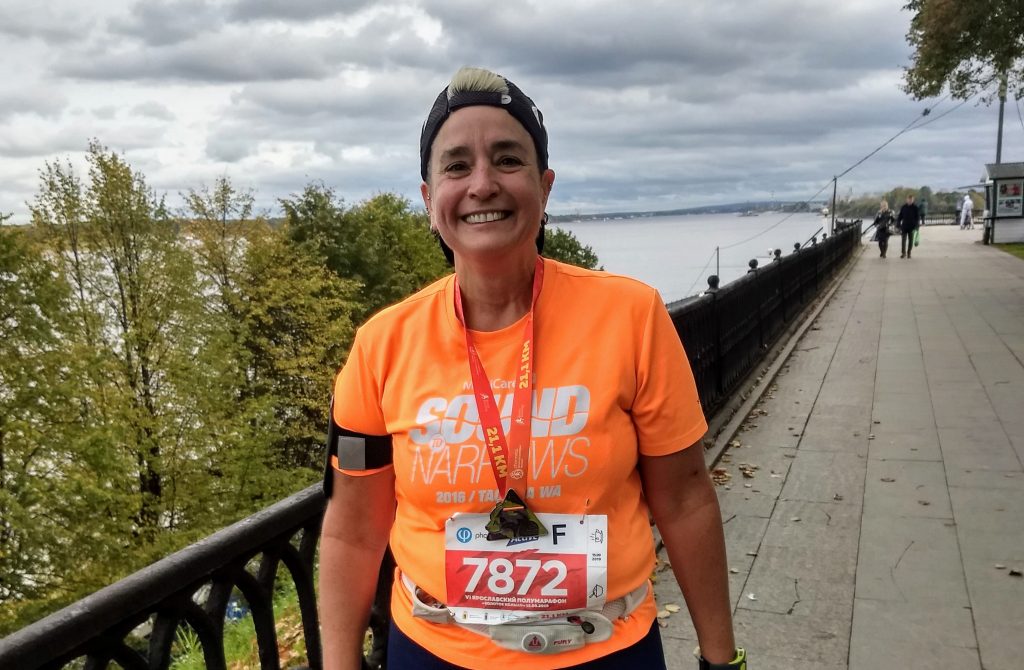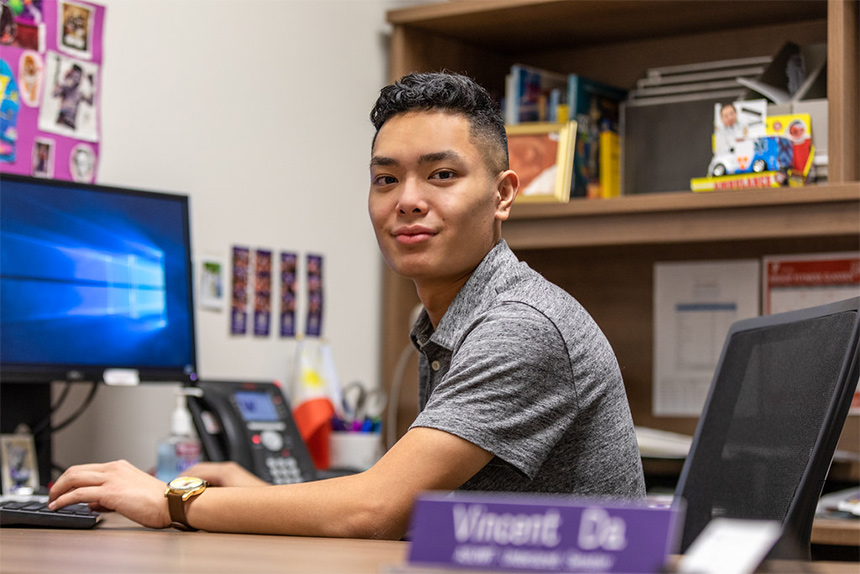Faculty Spotlight: Meet Professor Chris Demaske
Speaking with Dr. Demaske on journalism, education, projects and pastimes.
The Ledger was able to speak with Dr. Chris Demaske, a longtime UW Tacoma professor with a passion for writing, journalism, law, running and karaoke.
Before making her way to Tacoma, Demaske obtained her BA in Professional Writing at the California University of Pennsylvania. She told us that her career path trajectory stems from her realized love of writing and reading back in high school. She initially wanted to be a literature professor, but a few barriers and thoughts kept her from doing so.
“Probably the biggest driving thing for me was I’m a first-gen college student and come from a lower socioeconomic family, and I knew that I was going to need to have a career when I got out of college,” said Demaske. “There weren’t really jobs to do that. I just like to read. So I chose journalism as a field because I thought it gave me an opportunity to still be able to write and engage in things I like to, but I could get a job.”
During her first year in undergrad, her counselor advised her to take a course with her school newspaper. She was hesitant to do so at first because she was adamant that she would go into radio broadcast, but she finally gave in and noted it changed the course for everything to come.
“After a month into it, I was news editor, and by the beginning of my sophomore year I was only looking at newspaper,” she said. “Every job that I got through my entire career started at the student newspaper, I firmly believe that.”
Throughout her undergrad career, she progressed from working for small local newspapers and the campus magazine to the Pittsburgh Post Gazette. Following her love of newspaper journalism, she went to graduate school at the University of Mississippi, where she obtained her master’s in Journalism and Mass Communication. Upon graduation, she worked for a trade magazine publication, editing and writing for about five years before pursuing her doctorate.
She uprooted her life to venture to the Pacific Northwest, where she ended up at the University of Oregon to graduate with a Ph.D. in Communication and Society. During her time there she developed a passion for her theoretical background in law as well as critical race and feminist theories and hoped to find a job with a balance of both skill sets.
Now, as an associate professor in the Culture, Arts and Communication division of the school of Interdisciplinary Arts and Sciences, she found that perfect balance. Dr. Demaske began teaching at UWT in 2001 when it was just a small campus comprised of upper-division courses for Juniors and Seniors with primarily transfer, non-traditional and older students — many of whom were older than Demaske as she was entering this field of her work.
But what brought Dr. Demaske on board was more than the small community based environment of a budding university.
“When I interviewed here, what was really kind of cool is this was not just a Communications or Journalism program. It says Interdisciplinary Arts and Sciences. So, when I did my job talk, I had philosophers in the room, religious studies and environmental science people, and I was so enamored with this place. By the time I left this interview. I just thought, Oh my God, I will be devastated if I don’t get this,” Demaske said.
As a first-generation student herself, she also pointed out that she loved the idea in which she’d be able to teach in a place with a lot of students in the same position as her, where she could find common ground and relate to what they were experiencing.
“I love the idea of teaching in a place where we have a lot of first-generation college students. We have a lot of students from the working class family background and all of this gels with me. I was a first-generation college student, so I really wanted to be somewhere where I could do that.”
Teaching here for about 20 years, Demaske shared her continued love of the community.
“One of the things I loved, and still love, about this community is we sit in this weird little spot where we are teaching focused and we’re also research focused, because usually you’re one or the other,” she said.
Working on her research outside of the classroom, she recently finished a six-year project and came out with her second book, “Free Speech and Hate Speech in the United States: The Limits of Toleration,” in which she explores the need to restrict hate speech through a social justice framework and hopes to extend her work past the world of academia into different venues.
Finishing her book at the beginning of quarantine, Demaske noted that she was glad to have taught online before so she wasn’t completely blindsided by the transition like some of her colleagues were. And while she’s maintained her drive to uphold academic rigor and integrity while also being critical of what we lose from being unable to partake in the classroom environment, she also pointed out what she’s learned about teaching while in a pandemic.
“I think I’ve been a little bit more open to revisioning what it means to have rigor and recognizing that, when there’s an opportunity to have a little flexibility, that it’s not always a bad thing,” she said.
When she’s away from her life as a professor, scholar and author, she also loves running — having run about 19 half marathons and soon to be 14 full marathons — she likes to maintain balance in her life outside of work but noted that COVID has been hard on her and her wife who love karaoke, traveling and having parties with friends at home.
“I like a little balance in my life and a lot of people around. That’s probably the toughest thing with COVID, is we also usually entertained. We have parties, we hire bands, we like to do things all the time.”
Maintaining this balance in both her social and work life can be exhausting, but as Demaske mentioned, at the end of the day it’s all worth it to her.
“On a daily basis when I sit down and think about it. I still like being here, I like this campus, I like the students. I like what I do.” And the piece of advice she offered to all students is to “You know, enjoy the journey.”



